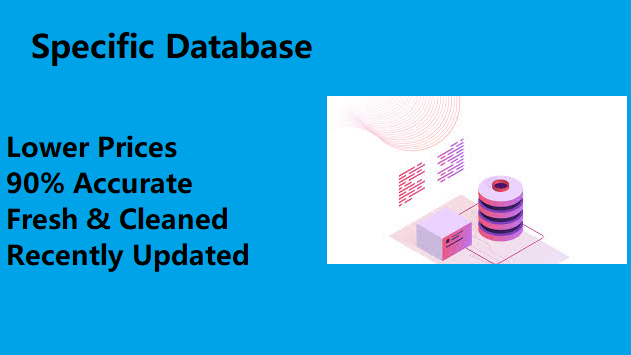|
|
Yes, there are many industry-specific databases that are available to businesses and researchers to help them collect and analyze data relevant to their particular field. These databases provide access to large amounts of information that can be used to make informed business decisions, track industry trends, and conduct research on specific topics.
Here are some examples of industry-specific databases:
Healthcare Databases: The healthcare industry has several databases that provide information on patients, medical procedures, medications, and more. Some examples include the National Health Service (NHS) in the UK, the Centers for Medicare and Medicaid Services (CMS) in the US , and the World Health Organization (WHO).
Financial Databases: Financial institutions and investors use databases like Bloomberg Terminal, Morningstar, and S&P Global Market Intelligence to track financial markets, analyze investment opportunities, and manage their portfolios.
Education Databases: The education industry has databases like the National Center for Education Statistics (NCES) in the US and the Higher Education Statistics Agency (HESA) in the UK. These databases provide information on educational institutions, enrollment statistics, graduation rates, and more .
Technology Databases: Technology companies can access databases like Gartner, Forrester, and IDC to research market trends, track technology adoption rates, and analyze customer preferences.
Marketing Databases: The marketing industry uses databases like Specific Database Nielsen and Kantar to gather information on consumer behavior, track marketing campaigns, and measure brand performance.
Legal Databases: Law firms and legal professionals use databases like LexisNexis and Westlaw to conduct legal research, access case law, and track legal precedents.

Energy Databases: The energy industry has databases like the Energy Information Administration (EIA) in the US and the International Energy Agency (IEA) that provide information on energy production, consumption, and distribution.
Environmental Databases: Environmental scientists and researchers use databases like the Environmental Protection Agency's (EPA) National Library Catalog and the National Oceanic and Atmospheric Administration's (NOAA) data center to access information on environmental quality, climate change, and naturals
|
|